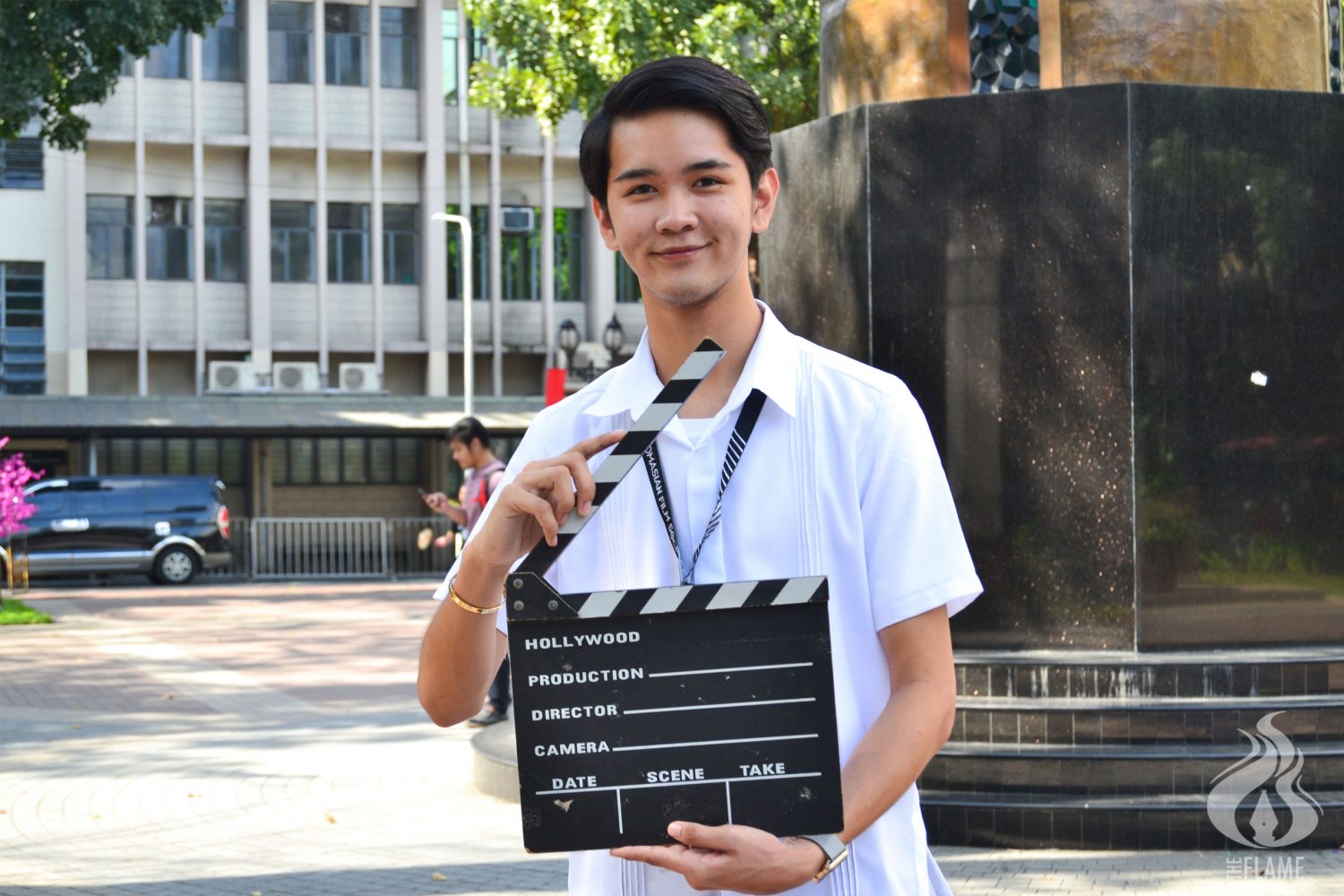
IN A time when apathy is said to persist among the youth, Neil Sebastian promotes interest in social issues through what he creates best: films.
The budding filmmaker marries his beliefs and advocacies with every film he produces. Similar to how a little pebble creates ripples when dropped into water, Neil aims to make an impact on his audience one film at a time.
“‘Yung mga goal ko na gawin na film [is] something that makes people think, makes people decide, makes people know about a certain issue. I always make sure that [the film] is something relevant,” he says.
The philosophy freshman also asserts that a film should consist of the filmmaker’s stand on a social matter. For him, it is not only about spreading awareness but also about molding the audience’s perspective on issues. He takes this task as a challenge.
“There’s always a reality that’s being tackled kasi [it’s] important na, ako, as a director, even though nagsasabi ako ng information, I make sure that I have a stand on it,” he says.
Behind the scenes
Neil’s interest in filmmaking was sparked by one of his classes in junior high school. What was once just a school project interested the young Neil; clueless, he studied it and discovered a newfound passion for the craft.
As his ideas grow in number, so do the challenges. Neil admits that he wanted to take a film degree in college but his parents wanted him to become a lawyer. Eventually, through relentless determination, he was able to convince his parents to support him in his passion.
“I was honest about it. I told them through text message. I cried kasi the response that I got from my father, sabi niya, ‘Sige, kung saan ka masaya, anak, susuportahan kita.’ Naiyak talaga ako no’n,” he reminisces.
Neil has produced more than ten short films since he started, with five of those having participated in film festivals. He shares that all of his works truly challenged him and acknowledged that only through taking risks can a young artist become better in his craft.
“Every time na gagawa ako ng film, I always make sure na this is something new to me, this is something challenging. My philosophy is you only get better when you take on new risks, when you go to higher mountains. [E]verything that I make should be something na hindi ko pa nagagawa and something na ma-cha-challenge ako as a person, as a director, as a content creator,” he expresses.
Breaking barriers
The hunger for constant improvement drove Neil to one of his greatest achievements so far. When he decided to enter his short film, Okay Lang, in the international film festival Short + Sweet after it was rejected in a local film competition, he was pleasantly surprised to learn that it got accepted.
Okay Lang sheds light on the internal pressure to always seem okay brought by Filipinos’ culture of constant positivity and cheerfulness. The protagonist—a young boy—becomes living proof that bullying does not only happen in schools but in homes as well.
“We have this idea [that] we have to take things lightly. We have to be ‘okay lang,’ happy-go-lucky, even though nasasaktan tayo. [T]hat is the kind of idea that I wanted to break down. I wanted [it] to be destroyed with the idea [that] it’s okay not to be okay,” Neil says.
Throughout the entire film, the protagonist is often asked how he is doing, to which he always replies “Okay lang” despite the struggles he faces. This later became the inspiration for the title.
Through his short film, Neil emphasizes the wounds left behind on victims, stressing that family can possibly become part of victims’ trauma.
“[W]ith the kind of culture that we have in the Philippines, hindi mo naman basta basta puwedeng sabihin agad sa magtatanong sa‘yo na napakasakit ng nararamdaman mo. Hindi ka puwede basta mag-open up,” he explains.
Striving for perfection
With rising popularity comes great responsibility, and Neil admits to the pressure of having so many people watch his work.
“Mas may responsibility ka as a director, as a content creator. [T]ayo dapat ‘yung mga mas responsible, the more that we realize that people are affected, that we change ideas,” he asserts.
According to Neil, his former teachers are using his films to inspire other students. This influence he wields, which is a huge pressure on his shoulders, made him choose philosophy because he believed it would improve him as an individual and as a filmmaker. However, he adds that he wants to learn philosophy simply for the sake of learning.
“[W]hen we become interested in something, let’s be mindful not of the result but of the experience [and] the learnings that we get from it, the kind of wisdom that we build in ourselves,” he says. “‘’Yung buhay, laging dapat may bungang-isip, laging dapat nagbubunga siya. Hindi dapat tayo makuntento kasi baka sa huli, mabulok tayo. [W]ala na tayong growth,” he encourages. F
Editor’s Note: An earlier version of this article was titled Neil Sebastian is keeping films ‘woke.’ The article title has been changed upon the wishes of the subject.



